Blafili XLR
An Affordable, High-Quality Wireless Solution for Active Speakers and Pro Audio
I have reviewed a few Blafili products in the past and I think they are a very interesting audio company, they specialise in finding interesting wireless audio niches and building excellent and pragmatically priced products to fill those niche and their latest product the Blafili XLR is no different.
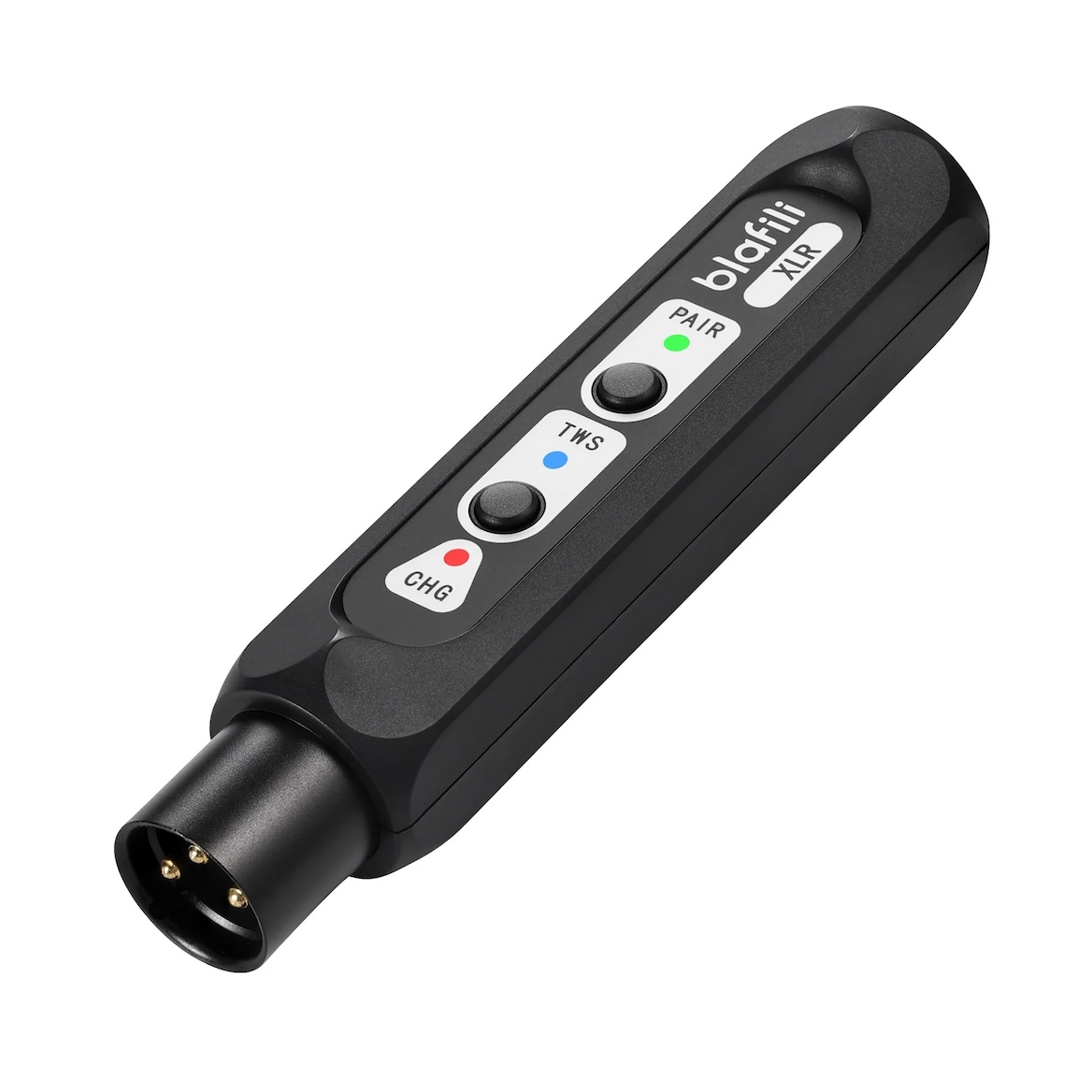
Buy 2 of these are you have stereo bluetooth to remote devices which have XLR inputs, like Active Speakers or possible some amplifiers. I did found a perfect use-case for this with my active speaker setup, but I can imagine many other audio setup issues where the Blafili XLR can come to the rescue, especially now that bluetooth is now matured enough to be acceptable for most audio setups.
Note: I would like to thank blafili for providing the XLR for this review. If you are interested in buying the XLR - the following is a non-affiliated link to this product: here
But before I get into the use-case lets have a look at what you get with the Blafili XLR:
Unboxing, Packaging and Accessories
The pair of Blafili XLR that I got arrived in basic yet functional packaging:
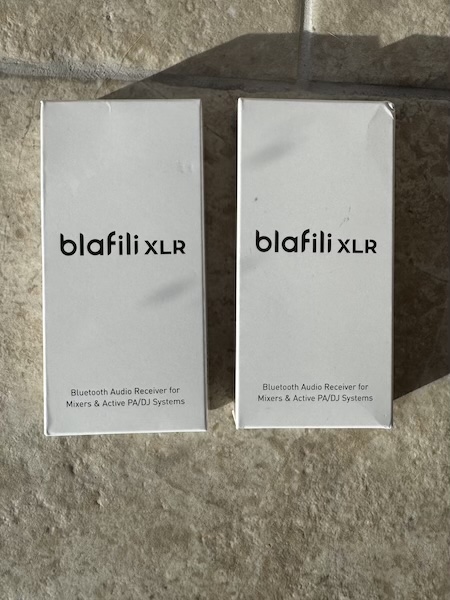
Inside each box you’ll find:
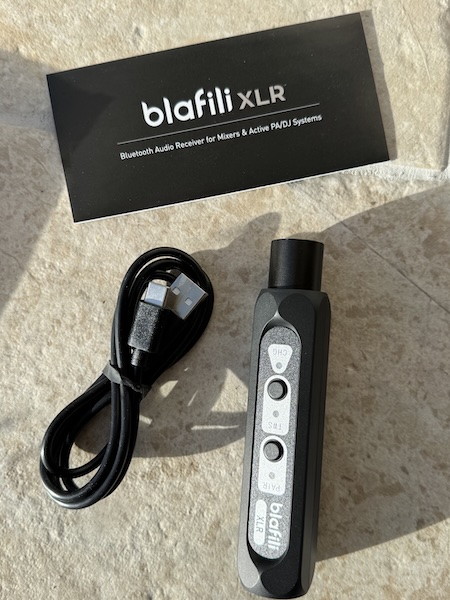
- Blafili XLR Bluetooth receiver
- USB-C charging cable
- User manual
The unit itself is compact and solidly built, with a standard 3-pin XLR output that connects directly to active
speakers, PA systems, or audio mixers. A USB-C port allows for either battery-powered operation (10+ hours) or
continuous DC power for fixed setups.
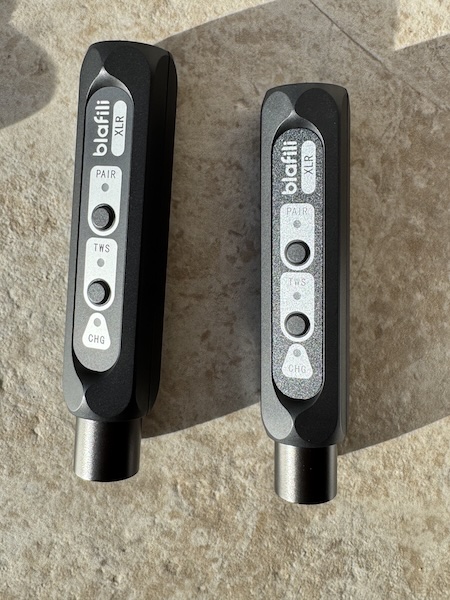
The usb-c interface can both charge and provide audio:
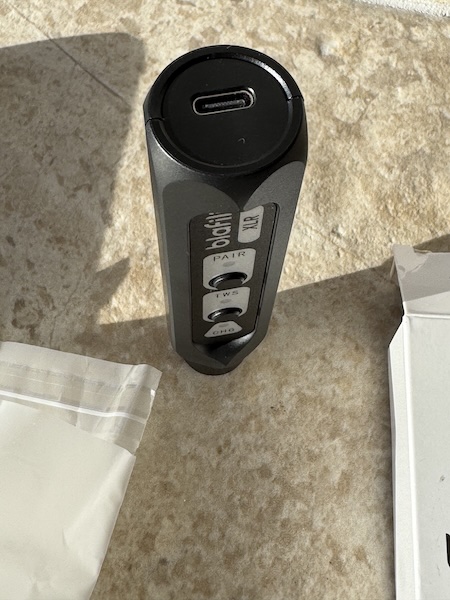
The XLR / Balanced output provides great compatibility:
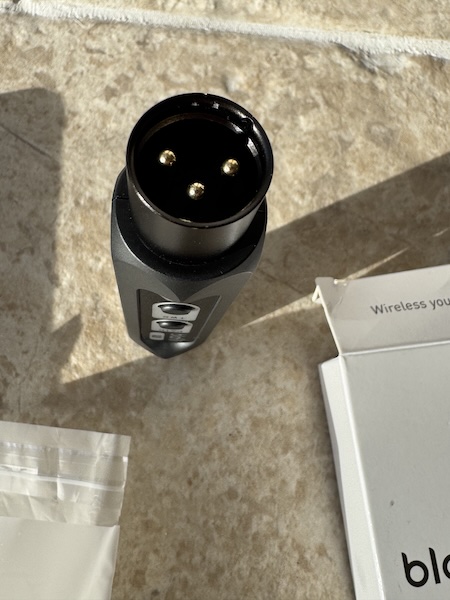
Weighing only 40g, the Blafili XLR is incredibly compact and lightweight. However, its form factor may pose a minor inconvenience when attached directly to XLR ports, as some users might prefer a short dongle in case they need to push the speaker closer to a wall as it does stick out of the XLR connection significantly.
Features
Bluetooth
The Blafili XLR offers a decent set of codecs with aptX HD, aptX Low Latency, aptX, AAC, and SBC codecs. The Qualcomm QCC3034 chipset ensures low latency and high fidelity, and it offers a stable connection and bitrate for up to 30 meters, this is especially true if you use a fixed devices (I am pairing it with my WiiM Ultra) and a pair of KRK Rokit Active Monitors so both ends of the connection will be at fixed locations.
But it works perfectly well streaming from iOS or Android:
TWS Pairing
The True Wireless Stereo (TWS) compatibility allows two Blafili XLR units to pair wirelessly, enabling stereo playback for larger setups or dual-speaker configurations, but you do need to follow the intructions to correctly pair 2 of them but then the TWS lights up when connected:
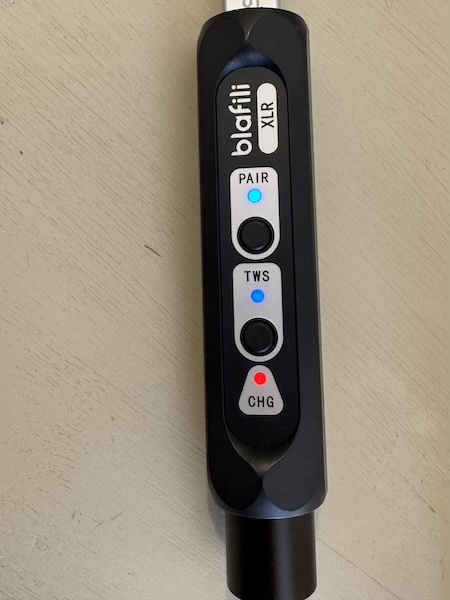 |
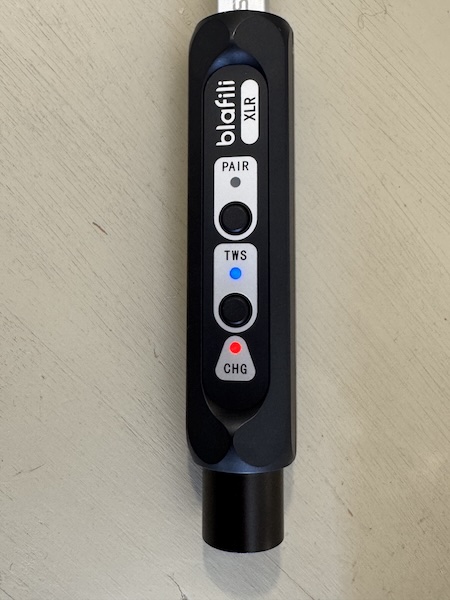 |
Battery
It has decent battery life so would also work well if you wanted to temporarily setup speakers in a garden for example for a birthday party. Each XLR comes with a 320mAh rechargeable lithium-ion battery, it provides up to 10 hours of runtime.
USB DAC
The Blafili XLR doubles as a simple USB DAC, supporting 16-bit/48kHz resolution, providing flexibility to connect directly to your computer for wired audio playback.
Specifications
| Feature | Details |
|---|---|
| Bluetooth Version | 5.1, A2DP, AVRCP |
| Audio Codecs | SBC, AAC, aptX, aptX LL, aptX HD |
| Audio Inputs | Bluetooth, USB-C |
| Balanced Audio Output | XLR male, 1.23V RMS |
| Frequency Response | 20Hz – 20kHz (±3dB) |
| Battery Life | Up to 10 hours |
| Charging Port | USB-C (5V, 500mA) |
| Bluetooth Range | Up to 100 feet (30m) |
| Weight | 0.09 lbs (40g) |
| Dimensions | 117 x 30 x 25 mm |
Audio Quality
I was skeptical about wireless audio keeping up with high-quality active speakers, but the Blafili XLR exceeded expectations with no artificial compression artifacts—clear, balanced sound output
When paired with the Wiim Ultra streamer, I noticed no audible degradation compared to a wired
XLR connection. The
sound remained detailed, clean, and well-defined across all frequencies.
Use Cases
I thought it might be useful to have a section talking about some use-cases for the XLR.
Wireless Connection for Bookshelf or Studio Monitors
I use two KRK Rokit RP5 active speakers as high-mounted bookshelf speakers.
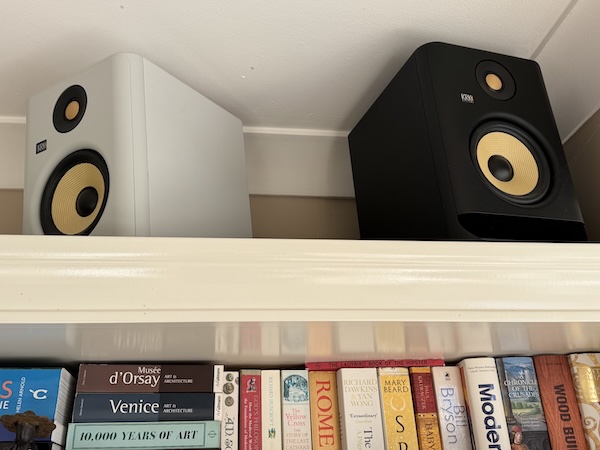
With the Blafili XLR, I was able to
wirelessly transmit audio from my Wiim Ultra streamer with zero loss in quality.
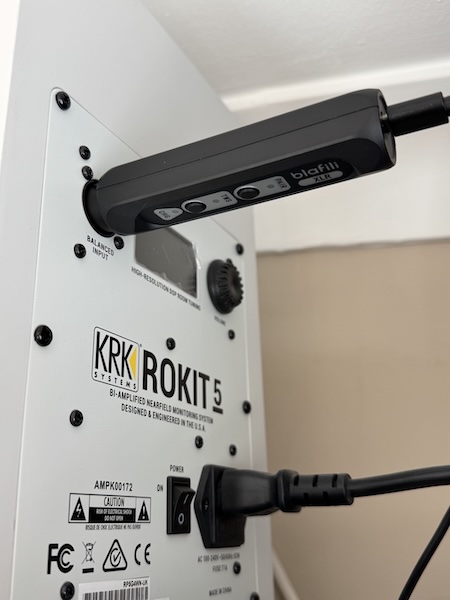
What I like about this setup is WiiM once a device is paired via bluetooth:
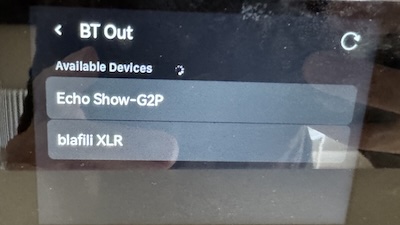
It then is saved as a dedicated output channel so the Blafili XLR perfect for this setup:
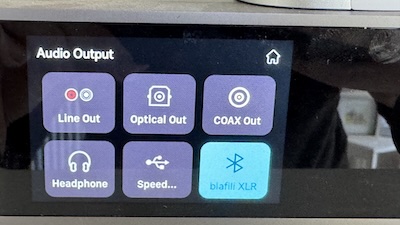
The TWS mode lets the two receivers function as dedicated left and right channels, ensuring a proper stereo image. After running room correction through the WiiM app, I found no difference between the wired and wireless setups, showing that the Blafili XLR transmits audio transparency over stable connections compared to wired.
Professional Use – Quick Setup for Live Performances
For musicians and DJs, setting up speakers for a gig can be a hassle. The Blafili XLR offers a low-latency wireless alternative, making it ideal for bars, small events, or rehearsals. Instead of running long cables across a stage, performers can quickly pair two units, plug them into powered speakers, and start performing within minutes.
Ratings
I have given the Blafili XLR a 4-star rating. At $45 per unit (with a $5 off coupon on Amazon), it’s even cheaper than some XLR cables—making it an affordable and effective solution for many audio setups.
For what it is and what it offers it is an excellent device, but I feel there are only a few limited use cases for audiophiles. But I would totally recommend these for DJs, live bands, sound engineers, and anyone in the pro audio industry who might need a wireless solution
Conclusion
The Blafili XLR Bluetooth Audio Receiver is very much a niche product but if you’re struggling with cable management for your active speakers or need a flexible wireless audio solution, the Blafili XLR Bluetooth receiver is a good option.
This compact device supports aptX HD, aptX Low Latency, AAC, and SBC, delivering excellent wireless audio quality while eliminating messy cabling.